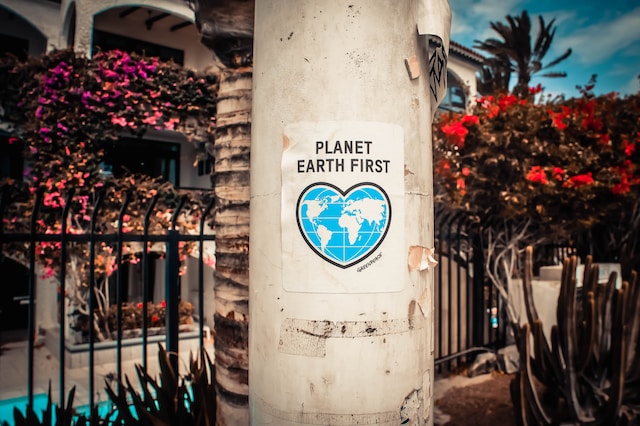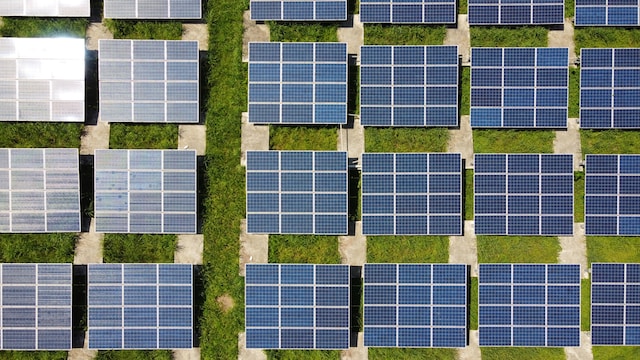Waste management may not be the most exciting topic, but it’s an essential aspect of our daily lives.
Have you ever wondered what happens to your garbage after you toss it in the bin? Or why recycling is so crucial?
In this article, we will delve into the world of waste management, exploring its significance, processes, and the role each of us plays in maintaining a cleaner, healthier environment.
What is waste management?
Waste management is the process of collecting, transporting, processing, and disposing of waste materials generated by human activities.
It encompasses everything from the garbage you throw in your household bin to the industrial waste produced by factories.
At its core, waste management aims to minimize the environmental impact of waste by reducing, reusing, recycling, and safely disposing of it.
This process involves several key steps, and it’s a lot more intricate than just tossing your trash in the bin.
In other words, waste management is the systematic process of collecting, transporting, processing, recycling, and disposing of waste materials in an environmentally responsible and efficient manner.
Its primary goal is to reduce the negative impacts of waste on the environment and public health while maximizing resource recovery and minimizing the volume of waste sent to landfills or incineration.
Key aspects of waste management include:
Collection: The first step involves the collection of waste materials from various sources, such as households, businesses, and industrial facilities. This can be done through curbside pickups, drop-off centers, or specialized collection services.
Transportation: Collected waste is then transported to waste management facilities, recycling centers, or disposal sites using trucks, containers, or other appropriate vehicles.
Sorting and processing: Upon reaching the facility, the waste is sorted to separate recyclable materials (like paper, plastic, glass, and metals) from non-recyclable or hazardous waste. The recyclables are then processed for reuse, while hazardous waste is managed in a controlled and safe manner.
Recycling: Recyclable materials are sent to recycling plants where they are cleaned, processed, and transformed into new products. Recycling helps conserve natural resources and reduces the demand for raw materials.
Waste-to-Energy: Some waste, especially non-recyclable and non-compostable materials, can be used to generate energy through incineration or other waste-to-energy technologies, reducing the volume of waste that ends up in landfills.
Landfilling: Non-recyclable and non-hazardous waste that cannot be converted into energy is disposed of in landfills. Modern landfills are designed with environmental safeguards to minimize contamination and prevent harmful emissions.
Composting: Organic waste, such as food scraps and yard trimmings, can be composted to create nutrient-rich soil amendments, reducing the amount of organic waste in landfills.
Hazardous waste management: Hazardous waste, which includes materials that can pose significant risks to human health and the environment, is managed separately, following strict regulations to prevent contamination.
Waste management is crucial for maintaining a clean and sustainable environment, conserving resources, reducing pollution, and promoting public health. It plays a vital role in the overall effort to minimize the negative impacts of human activities on the planet.
The history of waste management
Waste management is not a recent invention. Throughout history, humans have dealt with waste in various ways.
In ancient times, people often discarded waste in open areas, leading to unsanitary conditions and the spread of diseases. As societies evolved, they realized the need for more organized waste management systems.
The 19th and 20th centuries marked significant advancements in waste management, including the introduction of the first municipal waste collection services.
Since then, regulations and technologies have continued to evolve, addressing the growing waste challenges of the modern world.
Why is waste management important?
The importance of waste management cannot be overstated. Without it, our environment would be inundated with waste, leading to pollution, health hazards, and the depletion of natural resources.
Effective waste management not only keeps our surroundings clean but also conserves energy and reduces the emission of greenhouse gases.
Proper waste management contributes to the sustainability of our planet, as it promotes the responsible use of resources and the preservation of ecosystems.
Types of waste
Waste is not a one-size-fits-all category. There are different types of waste, each requiring specific management approaches.
Broadly, waste can be categorized into two primary types: solid waste and hazardous waste.
Solid Waste: This includes everyday items like paper, plastic, glass, and organic matter. Proper disposal and recycling are crucial to reduce the volume of solid waste in landfills.
Hazardous Waste: This type of waste is dangerous to human health and the environment. It includes chemicals, batteries, and medical waste. Specialized handling and disposal are essential to prevent harm.
The waste hierarchy
The waste hierarchy is a concept that guides waste management practices. It consists of three main principles:
Reduce: The first step is to minimize waste generation. This involves using resources more efficiently, buying products with less packaging, and consuming mindfully.
Reuse: When possible, items should be reused to extend their lifespan. This can include donating clothing or using reusable containers.
Recycle: Recycling is the process of converting waste materials into new products. It’s an effective way to reduce the strain on natural resources.
The journey of waste begins at your doorstep when you toss your trash into the bin. From there, it’s collected by waste management services, which use specialized vehicles to transport it to various facilities.
Efficient collection and transportation are vital for preventing waste buildup and ensuring it reaches the right destination for processing.
Waste sorting is a critical step in waste management. At recycling facilities, workers separate materials like paper, cardboard, glass, and plastics. These materials are then processed to create new products, reducing the need for virgin resources.
Recycling is a powerful tool in waste management, reducing the environmental impact of manufacturing and conserving energy.
Some waste materials cannot be recycled or reused. These materials must be disposed of properly to avoid harming the environment. Landfills and incineration facilities are commonly used for this purpose.
However, modern waste management practices strive to minimize the amount of waste sent to landfills and prioritize waste-to-energy technologies.
The 3 R's: Reduce, Reuse, Recycle
The “Reduce, Reuse, Recycle” mantra is the cornerstone of waste management. It emphasizes the need for individuals and businesses to take responsibility for their waste.
By reducing waste production, reusing items when possible, and recycling, we all contribute to a more sustainable future.
Advancements in technology have revolutionized waste management. From smart waste bins that notify collection trucks when they’re full to sophisticated recycling equipment, technology plays a significant role in making waste management more efficient and sustainable.
While significant progress has been made in waste management, there are still challenges to overcome.
These include issues like illegal dumping, limited landfill space, and the need for stricter regulations to control hazardous waste.
Effective waste management is intimately connected to environmental preservation. By preventing pollution, conserving resources, and reducing energy consumption, we protect the ecosystems that support life on Earth.
Waste management is a global concern. Different countries have varying waste management practices and face unique challenges.
Understanding these differences and sharing best practices can lead to more sustainable waste management on a global scale.
Conclusion
In conclusion, waste management is not just about taking out the trash. It’s a complex and essential process that helps us keep our environment clean, protect our health, and ensure the sustainable use of resources.
By understanding the basics of waste management and adopting responsible practices in our daily lives, we all contribute to a cleaner, greener future.

